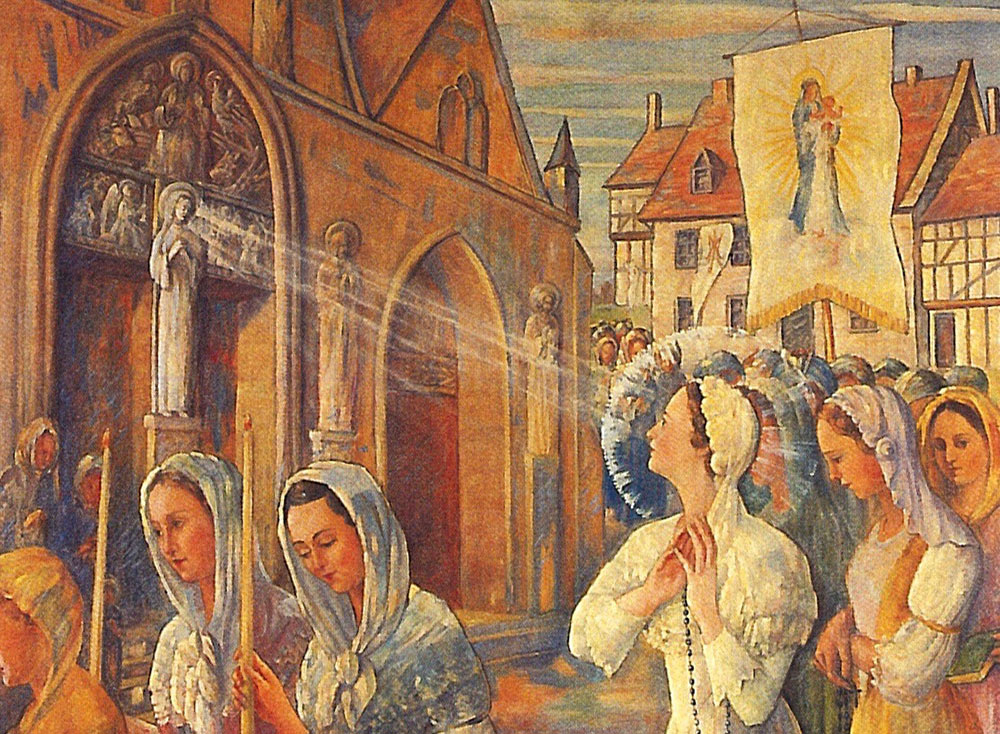October 7, 1640: Invitation to Compassion
One of the most intriguing passages of the autograph [writings] is Marguerite's account of the Rosary Procession of 1640. There are three different versions of it, adding a detail here, omitting one there, but substantially the same as to the moment and its sequel. Nowhere does she speak of a vision or an apparition. Yet she has no doubt about the spiritual nature of the experience or its Marian quality. She was moved so powerfully at the sight of a Madonna she had seen many times before that she was utterly changed. She was no longer the same person to her family and friends. She had had, up to now, little sympathy with the members of a confraternity who worked among the poor. She thought them pretentious [and] narrow minded. Now she has been given understanding. She is not given any specific orientation, however, as to what is expected of her. Now she immediately brings together in her life the evangelical duality of prayer and service, love of God and consequent love of other men [and women], especially all those suffering and deprived. She joins the Confraternity and works with the poor. She is able to say toward the last years of her life that she has never turned back from this first authentic conversion. Out of the moment of insight was born compassion. Neither pity nor sympathy has the same dimension. But compassion imposes a realization of shared humanity. It is increasingly demanding and enlarging, perpetually affirming the life of others, an invitation to understanding.
This sense of oneness with erring humanity, of solidarity with all men [and women] is the first step toward involvement. With the years, the Scriptures pointed out to Marguerite the pattern of total sharing in love: the mystery of the Visitation, a mystery of consolation, a desire to comfort one in distress or doubt, a constancy of presence that is faithful, accepting, effective. Sister Bourgeoys's choice of this mystery was somehow inevitable. It was a confirmation of the life-style she was to work out for and with others. Compassion is our difficult vocation.
From unpublished lecture notes of Sister M. Eileen Scott
